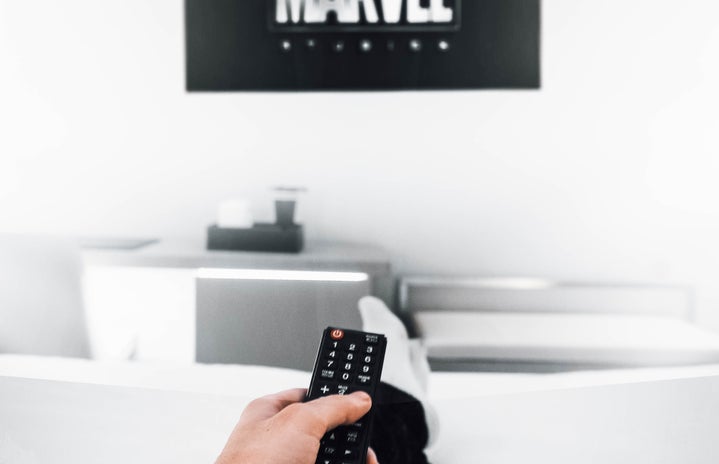Spoiler Warning: This article contains spoilers for Eternals, the most recent film in the Marvel Cinematic Universe (MCU)
A recent Variety column regarding Marvel’s Eternals opens with the headline “Why Is Chloé Zhao’s ‘Eternals’ Being Called the Worst MCU Movie Ever? For Reasons That Are Not Onscreen”
This review goes on to declare that Zhao’s film has been attacked not solely on its failings or successes as a film, but because Zhao, who recently won the Academy Awards for Best Picture and Best Directing and usually helms independent films, represents a type of filmic purity in the eyes of critics. This Variety review further specifies that, to film reviewers, indie darlings like Zhao are the last line of defence against the dominance of superhero blockbusters: to deal with Marvel Studios is nothing short of sacrilege. Thus, the Variety review concludes, Eternals was always destined to be panned, because critics are heavily pitted against the concept of an auteur like Zhao ever working with Marvel Studios.
I read several reviews prior to watching Eternals, and, true to form, they all panned the film. What I found upon actually watching the film, was an altogether different product from the woeful mishmash of a film that these reviews seemed to be decrying.
Eternals is not a perfect film by any means – nor is it quite the disaster critics have hailed it as. In fact, the longer the film went on (it’s got a hefty two-hour runtime, like most Marvel films), the more I found myself in agreement with the aforementioned Variety article.
Full disclaimer: I have never seen another of Chloe Zhao’s films (excluding Eternals, of course) so I can neither judge Eternals against those films nor claim that Eternals is lacking Zhao’s touch, as other critics have put forward.
As a film, Eternals may not be perfect, but it definitely works overtime to shake up Marvel’s tried and tested formula. This formula entails a classic three-act structure, flat villains and a massive spectacle that devours any hope of nuanced storytelling throughout the film’s final forty minutes.
In Eternals, we’re hit with what is Marvel’s first attempt at non-linear storytelling (according to my recollection, and I have seen every Marvel film to date). Eternals tells the story of a group of aliens imbued with a superpower, the Eternals. The Eternals, created by a superpowered deity known as Arishem the Judge, are sent to Earth during prehistoric times to protect mankind from the ravaging Deviants, superpowered beings that pretty much resemble dinosaurs. The Eternals serve as mankind’s protectors throughout history, up until the present day (they are unable to leave Earth until Arishem bids them leave). Eternals flashes forwards and backwards between the present – and its intrigue with the resurgent Deviants – and between several flashbacks that depict the Eternals’ thorny history across the centuries.
This story structure alone is a pretty big departure for Marvel. The choice to flesh out the Eternals history concurrently alongside the film’s main narrative leads to my second point: that Eternals is a breath of fresh air, thanks to its depiction of, believe it or not, messy family drama. The ten Eternals – Ajax (the Eternals’ leader), Ikaris, Sersi, Thena, Gilgamesh, Sprite, Druig, Makkari, Phastos and Kingo – are for all intents and purposes a sprawling family, who’ve had only one another to rely on throughout the centuries. The seeds of this drama (which I shan’t go into detail on, to avoid spoilers) are sown during these complex flashback sequences. This drama, in turn, spills over into the Eternals’ main plot, the present-day intrigue with the resurgent Deviants. This second point – as with the first – handily leads me into my third point: Eternals’ complicated character dynamics allow the film to easily sidestep Marvel’s so-called “villain problem”: the film’s would-be villains, the Deviants, are easily sidestepped by the narrative – and the true villain of the film, so to speak, emerges from within the complex and contrary bonds shared by the Eternals, which fracture the team near to the film’s end.
Do Eternals stick the landing with its narrative? Not quite, but it’s far better a film than many reviewers would have you believe.
Also – Eternals is by far one of Marvel’s prettiest films. The film is brimming with resplendent imagery. In one striking scene, Sersi/Gemma Chan touches the top of a bus that’s been flipped upside down by a Deviant and transfigures it with her powers. Cue a soft stream of deep red petals floating across the screen, complimenting the more opaque green in the background of the frame. Also, when Ajak and later Sersi commune with Arishem, all we see of his face is an extreme close up of his large, unblinking eyes. Again, the frame is a striking, deep red (conveniently the colour of Arishem’s skin). Seriously, this film is divine to look at.
Lastly, there is the issue of representation. Eternals is probably Marvel’s most diverse film, following on from the likes of Black Panther, Shang Chi and the legend of the Ten Rings and Marvel Studio’s most recent Spider-Man films. The cast is multi-racial, containing white, African American, Latinx, and British-Asian cast members; star Lauren Ridloff (playing Makkari) is both African American, Mexican American and deaf. Characters in the film can be seen regularly communicating with Ridloff’s character through sign language. Brian Tyree Henry’s character, Phastos, is gay and Angelina Jolie’s Thena and Don Lee’s Gilgamesh are in a loving interracial relationship. All of the exchanges between these characters – Makkari with the Eternals, Phastos with his husband and Thena and Gilgamesh’s warm interplay – are framed as perfectly normal within the film and never really drawn attention to, thus subtly making the case for a type of representation in films that steers well clear of othering and treats its subjects as no different from any other “normative” person (that is, someone supposedly normative in terms of their hearing capabilities or race or otherwise). In other words, the Eternals cast – and its titular family – is one that more closely resembles real-world diversity. Of course, a lot of the positive impact of this casting (interest in learning sign language increased after Eternals’ release) – as well as Eternals’ attempts to craft nuanced, character-driven conflict – have been somewhat overshadowed by the onslaught of negative reviews of Eternals.
Nonetheless, Eternals has plenty for filmgoers to enjoy – and is, in total, something of a diamond in the rough.


